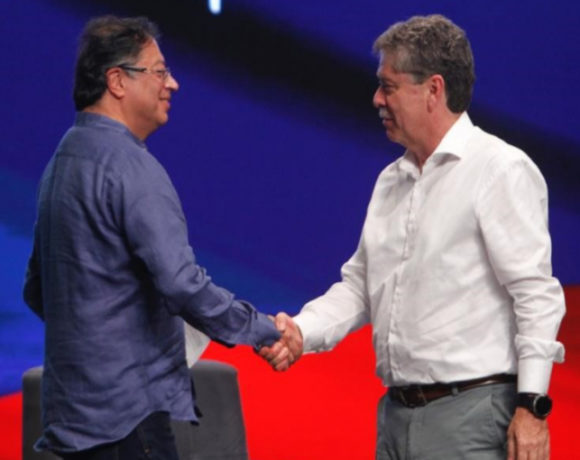Truckers, Colombia Government Settle National Strike

Colombia President Juan Manuel Santos and Transport Minister Jorge Eduardo Rojas Giraldo announced July 22 that a 45-days-long national truckers’ strike – aggravated by acts of violence and vandalism against non-strikers — has finally been settled, much to the relief of freight shippers and receivers.
According to the settlement agreement, the government will establish “clear procedures” to facilitate monetary compensation to small-business truckers that participate in the national “scrappage” (chatarrizacion) program, which aims to cut the current over-supply of trucks.
That program also would help Colombia get rid of old, high-polluting, mechanically unsafe trucks, which compete unfairly against costlier, modern, low-pollution, mechanically sound trucks.
The current “chatarrizacion” program has been plagued by corruption and schemes whereby old trucks weren’t actually scrapped, but just relabeled or fitted with parts from other trucks, according to the government.
“Our country needs a system of freight transport that is just, transparent and efficient, so that [freight shippers] pay fair prices and truckers are guaranteed their rights,” added Transport Minister Rojas.
Key points in the settlement agreement:
1. An immediate end to the truckers strike that had been promoted by four national trucking trade groups.
2. Updating of a published list of “reference costs” including highway toll-charges, fuel costs and maintenance costs. In certain trucking routes where there is a “significant difference” between real costs and reference costs, the national government will establish a temporary price with the help of a “Cargo Observatory” expert study group.
However, Colombian regulations no longer will include a table of freight-cost charges that had been developed in prior decades. Instead, the new scheme will allow “supervised,” free-market freight charges along with published reference costs.
3. The “chatarrizacion” program will continue the current policy whereby for each old freight truck destroyed, one new freight truck can enter the Colombian trucking market.
Funding for the “chatarrizacion” program will ensure that small-business truckers can be compensated for scrapping their old vehicles “without corruption, without intermediaries, without mafias,” Minister Rojas added.
The deal also calls for truck-driver employees to be paid what they’re actually owed and be treated with “dignity” at loading and unloading sites including Colombia’s ocean ports, the Minister said. A new study will be launched to investigate other trucker risks, possible retirement programs and housing-subsidy programs, he added.
















